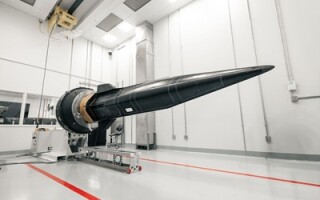DARPA program aims to secure DoD mixed-reality systems
OtherOctober 24, 2023

ARLINGTON, Va. The U.S. Defense Advanced Research Projects Agency (DARPA), as it looks into the near future in which military personnel widely rely on mixed-reality (MR) systems for their missions, recently launched the Intrinsic Cognitive Security (ICS) program to explore and validate mathematical approaches to ensure that MR system designs mitigate potential cognitive attacks.
MR systems, which merge real and virtual worlds in real time, are susceptible to interference; for example, military adversaries could exploit the intimate connection between users and their MR equipment through various techniques targeting cognition. Some examples of such interference would be information flooding to induce motion sickness; planting real-world objects to clutter displays; injecting virtual data to distract personnel; or the use of real-world objects to overwhelm the user with confusing false alarms. While commercially available augmented or MR systems apply cognitive engineering principles during development, today’s methods do not ensure that systems operate safely when facing an adversary intent on interfering with a mission.
DARPA's ICS program is tasked with exploring the mathematical approaches -- known as formal methods -- and seeks to prove guarantees relevant to MR user attacks and protections based on models applicable to MR system use.
Dr. Matthew Wilding, DARPA’s ICS program manager, said of the project: “We need to develop methods to protect mixed-reality systems before systems lacking protections are pervasive. This program will show how to protect personnel using rigorous, math-based development practices that enable MR adoption plans in DoD organizations.”
Modeling user behavior in the MR domain, said Wilding, will also enable researcher to understand how users behave when using immersive systems.
DARPA is splitting its ICS effort into two phases: Phase 1 focuses on developing proven guarantees to describe desirable properties of MR systems and supporting models to enable proofs of the guarantees, including cognitive models; the subsequent Phase 2 will validate the usefulness of the guarantees in MR systems. Participants will develop prototypes using commercially available hardware and software.







